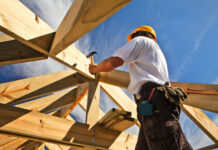Maintaining a home is an ongoing task that requires consistent care and attention. A well-maintained home not only increases its longevity but also ensures a comfortable, safe, and functional living space. From plumbing and electrical systems to regular cleaning and seasonal upkeep, staying on top of home maintenance can save you time, money, and headaches in the long run. Here are some essential tips to keep your home up and running smoothly.
1. Regular HVAC Maintenance
Your HVAC system is essential for maintaining a comfortable home throughout the year. To prevent expensive repairs and maintain optimal performance, regular maintenance is key. Make sure to replace or clean air filters every 1-3 months, depending on how often your system is used, to enhance air quality and ensure proper airflow. Clogged filters can put extra stress on the system, raising energy costs and shortening the equipment’s lifespan.
Additionally, have your HVAC system inspected by a professional at least once a year. This inspection can catch potential issues early, such as leaks or faulty components, helping you avoid expensive repairs down the road.
2. Inspect Plumbing and Fix Leaks Promptly
Plumbing problems, if left unchecked, can result in water damage, mold growth, and increased utility costs. It’s important to regularly check faucets, toilets, and pipes in hard-to-see areas for any signs of leaks or corrosion. Even minor drips over a long time can lead to substantial water waste.
Be mindful of water pressure changes, slow drains, or unusual sounds coming from your pipes, as these can be early signs of plumbing problems, and you should start looking for professional plumbing in St Albans or wherever your home is. Addressing minor issues quickly can prevent more severe and costly damage later. Consider installing water leak detectors in key areas like the basement or under sinks for added protection.
3. Clean Gutters and Downspouts
Clogged gutters can lead to water collecting in areas around your home, potentially causing structural damage, leaks, and mold. Regularly clean your gutters and downspouts, especially after heavy storms or in the fall when leaves and debris tend to accumulate.
In addition to cleaning, check for signs of rust, cracks, or loose fastenings in your gutters and downspouts. Ensuring that water is directed away from your home’s foundation can prevent costly repairs and keep your home dry and safe.
4. Test Smoke and Carbon Monoxide Detectors
For safety, it’s essential to regularly check your smoke and carbon monoxide detectors. These devices are your first line of defense against potentially deadly situations, so make sure they are in good working order.
Test your detectors once a month (there should be a ‘test’ button to press) and replace batteries at least once a year. Many detectors will emit a chirping sound when the battery is low, but it’s a good idea not to wait for that alert. In addition, replace smoke detectors every 10 years and carbon monoxide detectors every 5 to 7 years to ensure they function properly.
5. Maintain Your Roof
Your roof is one of the most critical parts of your home, protecting it from the elements. Regular roof maintenance helps prevent leaks, insulation issues, and expensive repairs. At least twice a year, inspect your roof for signs of damage, such as damaged flashing or sagging.
Clear off any debris, like leaves or branches, that may have accumulated on the roof, as this can trap moisture and lead to mold growth or rot.
6. Service Major Appliances
Major appliances like your refrigerator, dishwasher, washing machine, and dryer play essential roles in keeping your household running smoothly. To ensure they function properly and last longer, it’s important to clean and maintain them regularly.
For example, vacuum the coils behind your refrigerator to improve efficiency, clean the lint trap in your dryer after each use, and descale your dishwasher to prevent buildup. Regularly servicing these appliances can prevent breakdowns and extend their life.




